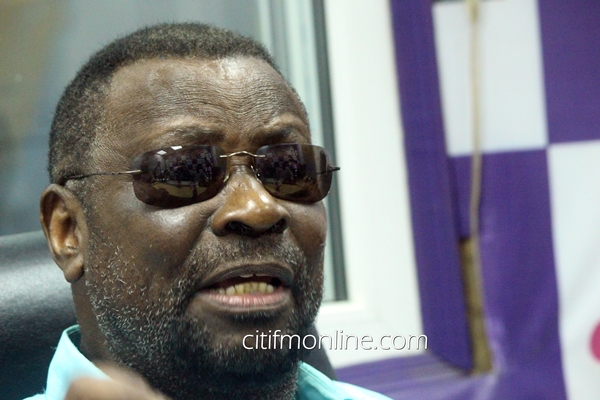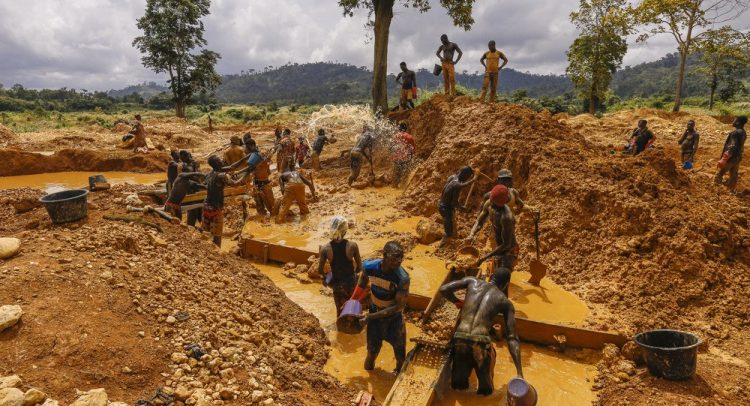
Time with Cameron Duodu (3)
After my first encounter with Cameron at the Press Centre in July, our meetings became very regular as we had a lot to discuss about the past. We also chatted very often on phone.
By then, we had established some kind of cordial relationship. It looked as if we had known each other for a long time. I really cherished the intimacy. It came to a point when Cameron would call me first thing in the morning to know about my programme for the day.
I always found it difficult to turn down an invitation for a meeting. Having moved with some elderly people, I know what they like most is company.
It happened that three Thursdays ago, I had some engagements at Legon and I did not want anything to interfere with my visit to the university.
So I decided to call my friend and inform him that I would not be available that day.
The History Department
I was surprised when after I had told him I would be in Legon for most part of the day, he also shot back that he would be in Legon the same day. When I asked him where he would be and at what time, he told me he would be at the History Department.
I couldn’t believe this. The History Department of the University of Ghana? To do what? It was then he told me he was going to write something, a book, on the late Professor Adu Boahen, and he, therefore, had an appointment with Prof. Robert Addo-Fening to arrange for him to get hold of Prof. Adu Boahen’s file.
Cameron told me he would be at the place around noon and he would spend sometime there. I promised to pass by the History Department to meet him.
My dear readers, I was really thrilled that I would be going back to my old department, where I spent two wonderful years as an honours student in History between 1968 and 1970.
After graduation, I did not have much to do at the History Department. If my memory would serve me well, my last visit to the department was sometime in 1973 when I joined a group of mourners on a trip to Abetifi for the funeral of Dr K. Y. Daaku, an up-and-coming lecturer who taught me during my undergraduate days. At that time, I was teaching at nearby Presbyterian Boys Secondary School (Presec).
Later in October 1973 when I returned to Legon for my postgraduate studies, it was at the newly opened school of Communications and Journalism that I pitched camp. From that time, I had very little to do at the History Department.
It was, therefore, Cameron’s visit to the History Department on August 10, 2017 that enabled me to visit the old place for the first time in more than 40 years.
{loadmodule mod_banners,Nativead1}
That day I was in Legon early and after my appointments at the Registry, Commonwealth Hall and the Alumni Centre, I headed for the History Department. It was a sort of homecoming. As I tried to climb up to the first floor, I saw a young man coming down. He quickly asked me who I was looking for.
I told him I had an appointment with Cameron Duodo, who should be there with Prof. Addo-Fening. He quickly asked me to come up, but not before I told him I was a student there in the late 1960s.
I later got to know that the man I was talking to was Dr Ofosu Mensah, the Head of the History Department. He ushered me into a big room where I saw Cameron and Prof. Addo-Fening.
Incidentally, the Prof. is also known to me. He had come to the department as a young lecturer the year I entered Legon in October 1967 but was not one of my lecturers. I studied rather under Dr Daaku, Dr J. K. Fynn and Prof. Adu Boahen, all now deceased.
It was when Prof. Addo-Fening served as Board Chairman of Ghana Post during the Kufour administration that I got closer to him, thanks to the Managing Director (MD) of Ghana Post, then my good friend, Lawyer Kofi Dua Adonten, who engaged me to do some media consultancy for Ghana Post.
It was great to meet Prof. and Cameron at the good old place, of which I had fond memories, especially some of the times we had with Prof. Adu Boahen, who took the honours class of 1970 on a tour from Accra to Half Assin; visiting all the forts and castles on that stretch.
I have decided to give some space to this encounter with Cameron at Legon because one of his engagements while in the country is the research into the life and times of Prof. Adu Boahen. He was happy to learn I was a student of the old professor who was an authority on Ghana and West African history. He naturally expects to tap some information from me.

Galamsey menace
Cameron has actually been in the country since May 24 from his London base where he has been practising as a freelance journalist for years. He purposely came down to celebrate his 80th birthday, which fell on May 26, with family members and close associates.
Without he telling me, I also feel that Cameron is also in the country to have a look at the devastating effects of “galamsey” on the environment, especially our water bodies.
As far back as April this year, while still in London, he had written that “One thing that has become clear since the government began to take the galamsey problem seriously is that the actual scale of the woeful pestilence has been underestimated by most people in Ghana.
“Some people think it’s “a few” water bodies that have been “tampered with” by galamseyers. But that is not true. The Atiwa Forest Range in the Eastern Region, for instance, is the source of three major rivers - Densu, Birem and Ayensu. Now Densu is the source of the water that flows into the Weija Reservoir which serves most of Accra with its water.
“Destroying that source of water is not just ‘tampering with’ Accra’s water supply system. It is declaring a ‘water siege’ on the people of our capital.’
On the role of the judiciary in the fight against galamsey, Cameron had written while in London that, “Maybe the designation of some courts by the Chief Justice as “galamsey courts” indicates a new commitment on the part of the judiciary to do its part in making galamsey a more patently risky undertaking to its operators than hitherto. Of course, the courts – however determined to end galamsey they might be – can do nothing unless illegal miners are vigorously presented before them.”
Since arriving in the country, Cameron has discussed the problem of galamsey on television and in his weekly column in the Ghanaian Times, Letter from Afar.
On June 20, 2017, Cameron had asked, “But who at all bailed those Chinese galamseyers?” He wrote thus:
“For instance the Media Coalition Against Galamsey, is it not unusual that not a single reporter from a single media establishment; not a single member of the top brass of the media establishment was intrigued enough to get his organisation to “pry” into who it was that fulfilled the bail conditions of Aisha and her gang? Who pays their lawyers? Are these not legitimate areas of enquiry in the public interest?”
Then in his latest piece in the Ghanaian Times titled “How galamsey kicked one in the gut”, Cameron actually lamented how galamsey had destroyed his own area of Asiakwa and its surroundings.
“Ho! Suponso has been completely destroyed! I had asked the man who takes care of my deceased father’s farms at Asiakwa, in the Eastern Region, whether Suponso could be used for large-scale cassava farming.”
He couldn’t believe the extent of damage caused to the flora and fauna of his own area, where he grew up, remembering the greenery of those years.
Well, dear readers, I cannot complete this final piece on such a remarkable character without going back to where I ended last week.
As I mentioned, he left GBC to join the Ghana edition of the South African Magazine, The Drum, to face new challenges. He did not go there with the intention of editing the magazine, which had in its stable such stalwarts as Henry Ofori, Sam Arthur and Moses Danquah.
However, this was a period when the magazine came under political scrutiny and was also facing import licence problems. All the top journalists mentioned above left, leaving Cameron to take over the editorship of the Drum from 1960 to 1965.
After the Drum was banned for the second time in 1965, Cameron was on his own. It was during this time that he wrote the best–selling novel, ‘The Gab Boys’, which was published in London in 1967.
Later in February 1970, he was appointed the editor of the biggest selling newspaper in Ghana. It was his vision to produce a newspaper that would be a pride to all Ghanaians. But unfortunately, his disagreement with then Prime Minister, Dr Kofi Abrefa Busia, on a dialogue with South Africa led to his removal as editor in October 1970 after only eight months in the saddle.
From that time, Cameron went into full-time free lancing, writing for such publications as The Observer, The Financial Times, The Sunday Times, United Press International, Reuters, among others. He also wrote regularly for the BBC.
In 1983, he had to move to London, which he has made his permanent home, when he realised he was not safe in Ghana following series of stories he wrote on the abduction and murder of the three High Court judges and a military officer.
Since then, Cameron has become an authority on contemporary, African history, criss-crossing the continent writing mind-boggling stories for the BBC and other magazines and newspapers.
